Vegan Globetrotter is supported by our audience. When you purchase through one of our links, we may earn a small affiliate commission. As an Amazon Associate I earn from qualifying purchases. Your cost is not affected.
==================
Are you searching for a diet that supports your health and ethical choices? The Vegan Mediterranean diet might be your answer.
This diet is a fusion of the plant-rich Mediterranean and vegan lifestyles. It combines the heart-healthy principles of the Mediterranean diet with veganism’s compassion and environmental sustainability. As a long-time follower of this diet, I can attest to its numerous health and ethical benefits.
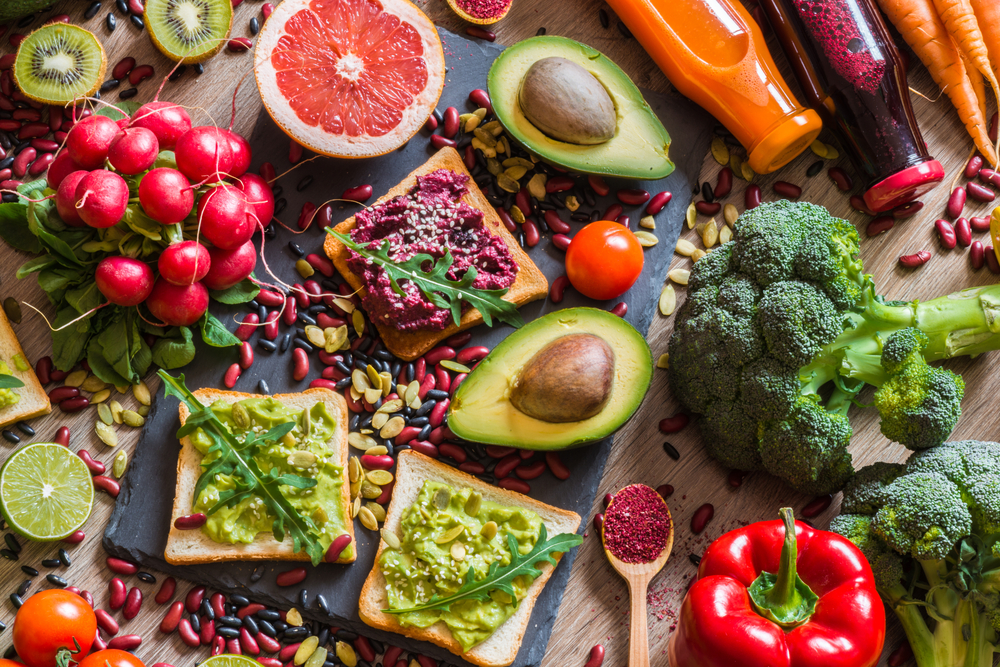
What is on the Healthiest Diets?
The Mediterranean diet, known for its focus on fruits, vegetables, whole grains, and lean proteins, has been lauded by health experts as one of the most beneficial diets for long-term health.
On the other hand, the vegan diet, which excludes all forms of animal products, is recognized for its ethical and environmental benefits.
By combining these two diets, the vegan Mediterranean diet offers a unique approach to health and wellness that is both nutritionally rich and ethically sound.
Today, we explore the vegan Mediterranean diet in depth, discussing its benefits, how to follow it, and how it might improve your health and overall wellness. So, get ready for a journey through the Mediterranean, all while staying true to your vegan convictions.

Why Choose the Vegan Mediterranean Diet?
The vegan Mediterranean diet offers a balanced and nutritious approach to eating that promotes overall health, longevity, and sustainability. In my years of following this diet, I’ve found it to be more than just a way of eating. It’s a lifestyle.
Firstly, this diet is rich in fruits, vegetables, whole grains, legumes, and healthy fats, all of which are essential for maintaining optimal health. It’s also low in processed foods and sugars, which are known to contribute to various health issues. Following the vegan Mediterranean diet nourishes your body and reduces your risk of chronic diseases.
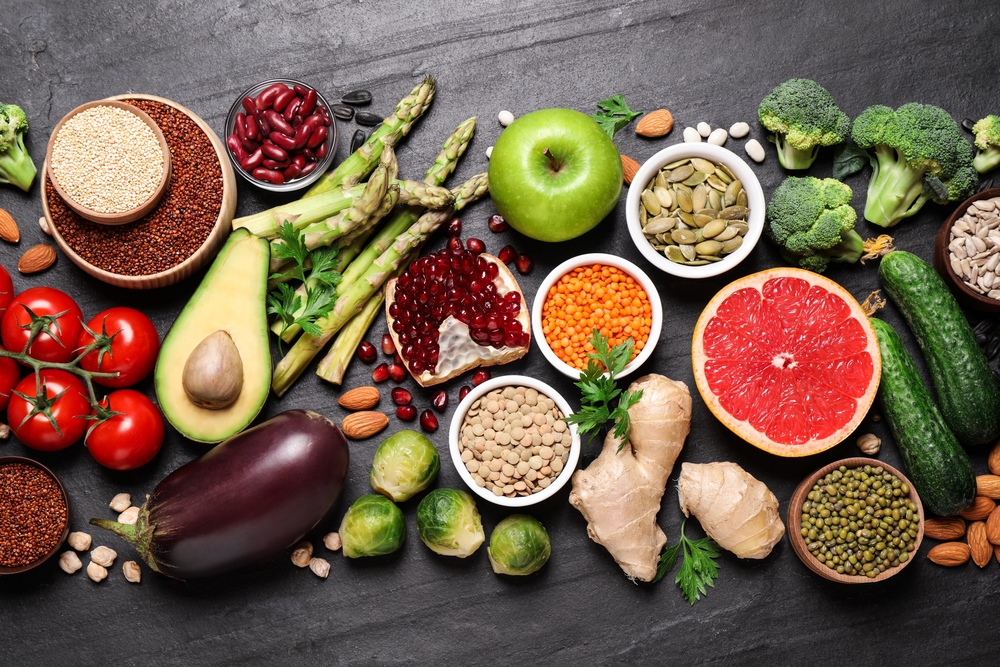
More Than the Healthiest Diets for People
In addition to its health benefits, the vegan Mediterranean diet also aligns with the ethical principles of veganism. By excluding animal products, you’re taking a stand against animal cruelty and environmental degradation. You’re also contributing to a more sustainable food system, as plant-based diets require fewer resources and produce fewer greenhouse gas emissions compared to animal-based diets.
Health Benefits of the Vegan Mediterranean Diet
The health benefits of the vegan Mediterranean diet are numerous and well-documented. As a follower of this diet, I’ve experienced improvements in my overall health, energy levels, and even my mood.
Research has shown that the Mediterranean diet helps reduce the risk of heart disease, high blood pressure, and type 2 diabetes. It also helps improve cognitive function and longevity. As a plant-based version of this diet, the vegan Mediterranean diet offers these same benefits while providing additional health benefits associated with a plant-based diet.

Invest in your Future Health
Furthermore, a vegan diet can lower the risk of certain cancers, improve kidney function, and aid in weight loss. It’s also rich in fiber, which supports digestive health, and antioxidants, which protect against oxidative stress and inflammation. So, by following the vegan Mediterranean diet, you’re enjoying delicious food and investing in your long-term health.
Understanding the Vegan Mediterranean Diet Food List
The vegan Mediterranean diet food list consists of a wide variety of plant-based foods. This is one of the aspects I love most about this diet. The diversity of foods allows for endless meal possibilities, ensuring that your diet is both nutritious and exciting.
While many people think that vegans eat only salad greens, the truth is that many Mediterranean dishes contain other flavorful, healthy foods, too. Vegan Mediterranean recipes help pull together these plant-based ingredients of veggies, fruit, grains, legumes, and others to create a flavorful dish every time.
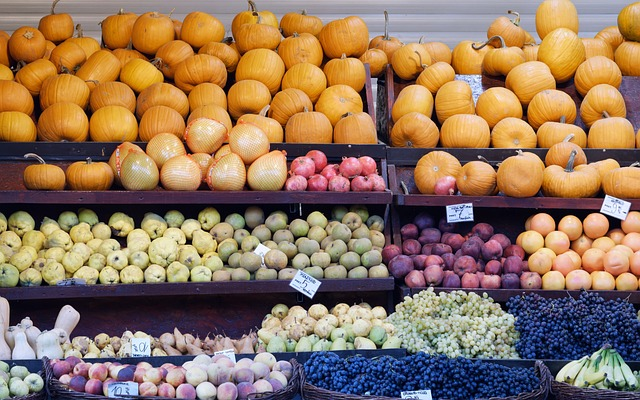
Explore the Produce Department for Ideas
The diet emphasizes fruits and vegetables rich in vitamins, minerals, and antioxidants. Whole grains, such as brown rice, quinoa, and whole wheat pasta, provide fiber and B vitamins.
Legumes, like lentils, chickpeas, and cannellini beans, are a great source of protein and fiber. Nuts and seeds provide healthy fats, protein, and various micronutrients.
Not Fat-Free
Healthy fats, particularly olive oil, are a staple of the vegan Mediterranean diet. Olive oil is rich in monounsaturated fats, which are beneficial for heart health. We enjoy Avocado oil and Grapeseed oil, too.
Finally, herbs and spices are used generously to add flavor without the need for excess salt or fat.
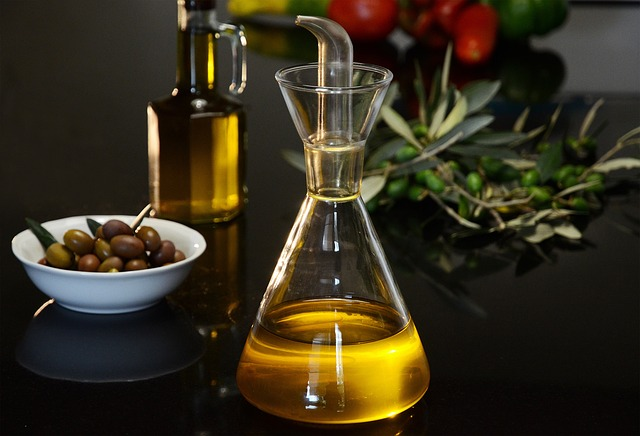
How to Plan a Vegan Mediterranean Diet Meal
Planning a vegan Mediterranean diet meal can be a fun and creative process. The key is to focus on variety, ensuring that your meals include a balance of fruits, vegetables, whole grains, legumes, and healthy fats.
When I plan my meals, I start by choosing a variety of colorful vegetables. Then, I select a whole grain, such as quinoa or brown rice. Next, I add a source of plant-based protein, like lentils or chickpeas.
I make sure to include a source of healthy fat, such as olive oil or avocados. Finally, I flavor my meal with herbs and spices and often finish with a drizzle of lemon juice for a burst of freshness.
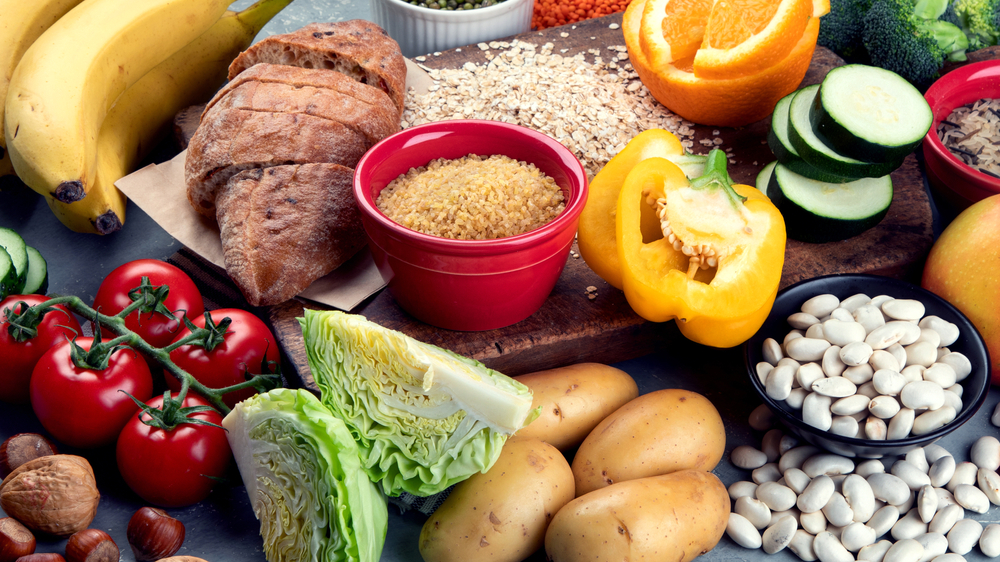
A Week-Long Vegan Mediterranean Diet Meal Plan
To help you get started, here’s a sample week-long vegan Mediterranean diet meal plan. This meal plan provides a variety of delicious and nutritious meals that showcase the diversity of the vegan Mediterranean diet.
Day 1:
Breakfast – Quinoa porridge with berries and almonds.
Lunch – Chickpea salad with tomatoes, cucumbers, onions, and olive oil.
Dinner – Lentil soup with whole grain bread.
Day 2:
Breakfast – Whole grain toast with avocado and tomatoes.
Lunch – Quinoa salad with roasted vegetables and hummus.
Dinner – Stuffed bell peppers with brown rice and black beans.
Day 3:
Breakfast – Overnight oats with bananas and walnuts.
Lunch – Lentil salad with mixed greens and olive oil.
Dinner – Vegetable stir-fry with tofu and brown rice.
Day 4:
Breakfast – Smoothie bowl with mixed berries, spinach, and chia seeds.
Lunch – Chickpea pasta with tomato sauce and olives.
Dinner – Stuffed eggplant with quinoa and lentils.
Day 5:
Breakfast – Whole grain pancakes with blueberries and almond butter.
Lunch – Lentil soup with whole grain bread.
Dinner – Vegetable paella with brown rice.

Day 6:
Breakfast – Chia seed pudding with mango and coconut.
Lunch – Quinoa salad with roasted vegetables and hummus.
Dinner – Lentil curry with brown rice.
Day 7:
Breakfast – Smoothie with banana, spinach, and almond milk.
Lunch – Chickpea salad with tomatoes, cucumbers, onions, and olive oil.
Dinner – Vegetable stir-fry with tofu and brown rice.
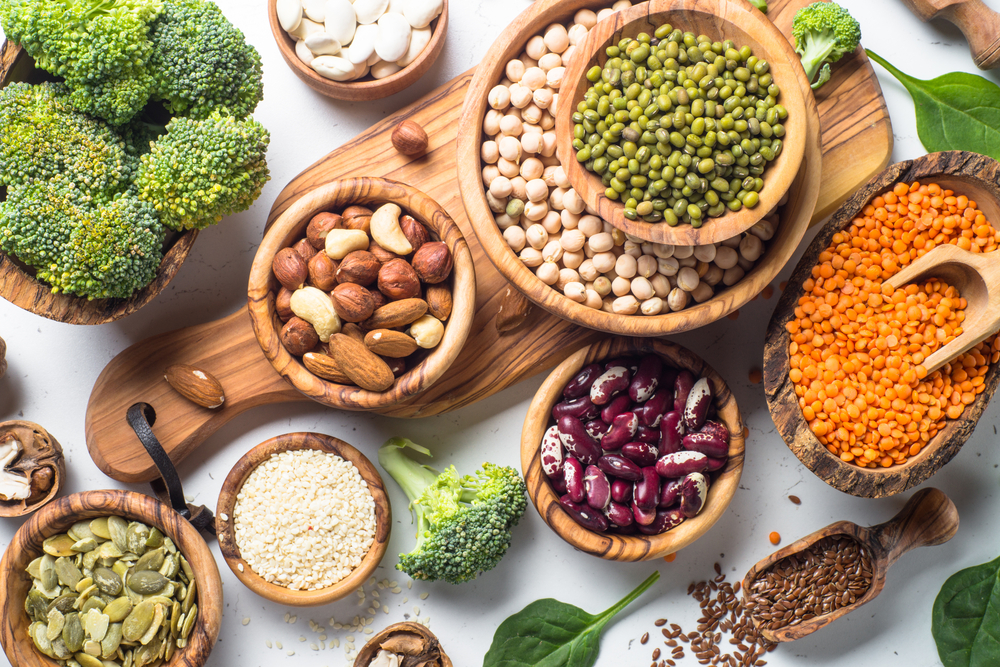
Tips for Following a Mediterranean Vegetarian Diet
Following a Mediterranean vegetarian diet can be quite simple with the right strategies. Here are some tips to help you along the way.
Firstly, focus on whole, plant-based foods.
Avoid processed foods and added sugars, which can negate the diet’s health benefits.
Secondly, eat a variety of foods.
This helps ensure you’re getting a wide range of nutrients. Don’t be afraid to try new foods and experiment with different flavors and textures.
Thirdly, make meal planning and preparation a routine.
This can help ensure that you always have healthy options on hand and prevent you from making less healthy choices.
Lastly, remember that the Mediterranean diet is not just about what you eat.
It is also about how you eat. Enjoy your meals relaxed and leisurely, and share them with others whenever possible.
Avoid stressful eating. Meals should always be enjoyable and relaxed.

How to Transition to a Vegan Mediterranean Diet
Transitioning to a vegan Mediterranean diet can be a rewarding journey, but it may also pose some challenges. As someone who has made this transition, I can share some tips to make the process smoother.
Firstly, take it slow.
You don’t have to change everything overnight. Start by introducing more fruits, vegetables, whole grains, and legumes into your diet. Gradually reduce your intake of animal products and processed foods.
Secondly, educate yourself.
Learn about the nutritional needs of a vegan diet and how to meet them through plant-based foods. Understand the principles of the Mediterranean diet and how to apply them in a vegan context.
Finally, seek support.
Whether it’s from a nutritionist, a support group, or online communities, having people who understand and support your journey can make a big difference.
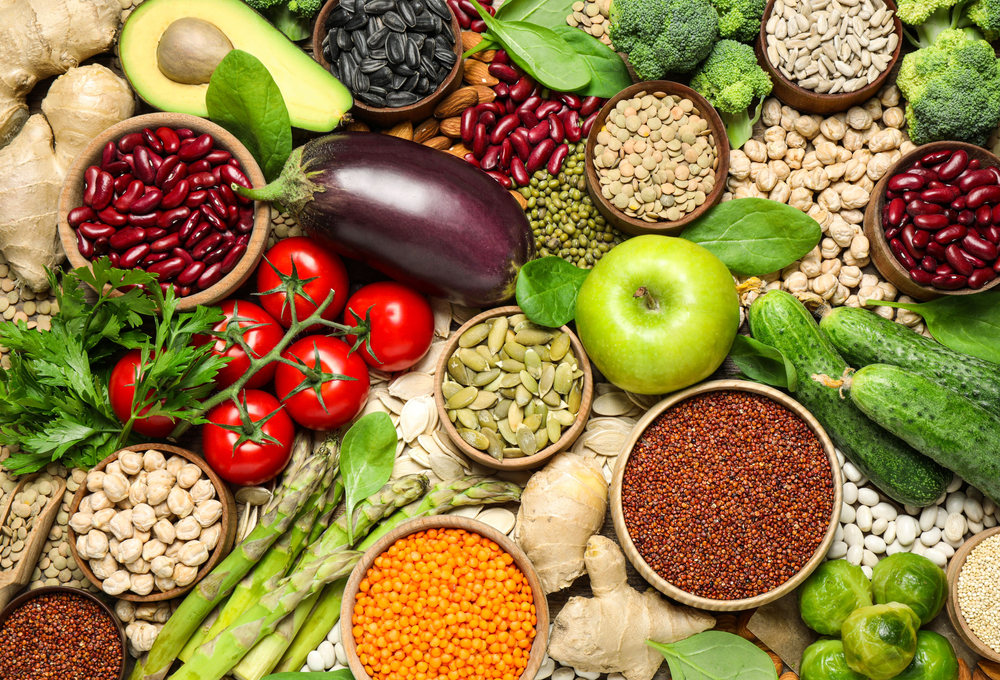
Common Misconceptions About the Vegan Mediterranean Diet
I’d like to address some common misconceptions about the vegan Mediterranean diet.
Do you think it’s complicated? Keep it simple.
Some people believe getting enough protein on a vegan diet is difficult. However, many plant-based foods, such as legumes, nuts, seeds, and whole grains, are high in protein. You can easily meet your protein needs by eating a variety of these foods.
Plain lettuce salad? Enjoy the diversity.
Some people believe that the vegan Mediterranean diet is restrictive. However, this diet is actually quite diverse, including a wide variety of fruits, vegetables, whole grains, legumes, nuts, seeds, and healthy fats. With so many options, you’re unlikely to feel deprived.
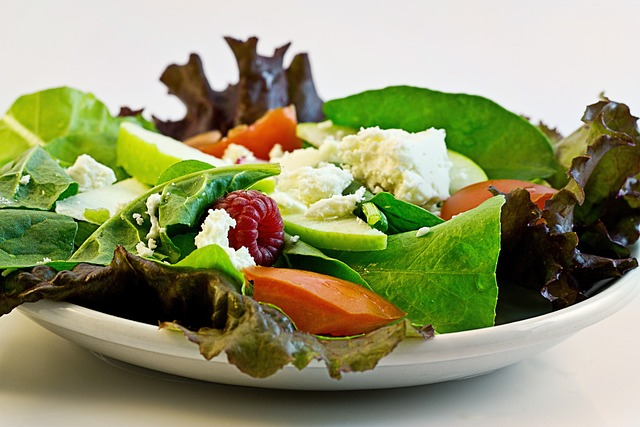
Too costly? Keep it economical.
Some people believe that following a vegan Mediterranean diet is expensive. While some plant-based foods can be expensive, many are quite affordable, especially when bought in bulk. In fact, by reducing your intake of animal products and processed foods, you will probably save a substantial amount of money.
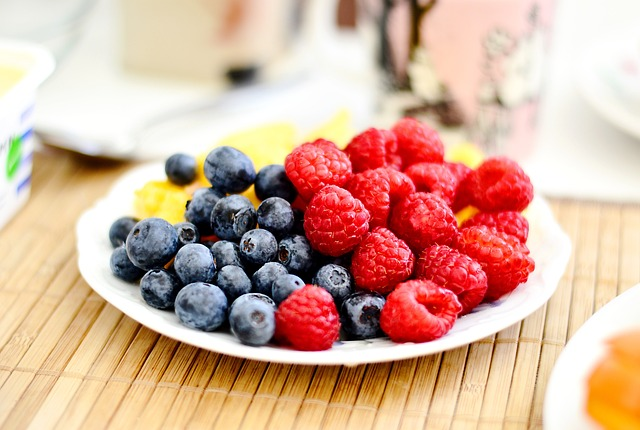
Embracing a Healthy Vegan Diet
The vegan Mediterranean diet is a powerful tool for health and wellness. It combines the heart-healthy principles of the Mediterranean diet with the ethical and environmental benefits of a vegan lifestyle. As someone who has been following this diet for years, I can attest to its numerous benefits.
Whether you’re already a vegan looking to improve your diet or you’re just starting to consider a plant-based lifestyle, the vegan Mediterranean diet can offer a balanced and nutritious approach to eating that supports both your health and your ethical convictions.
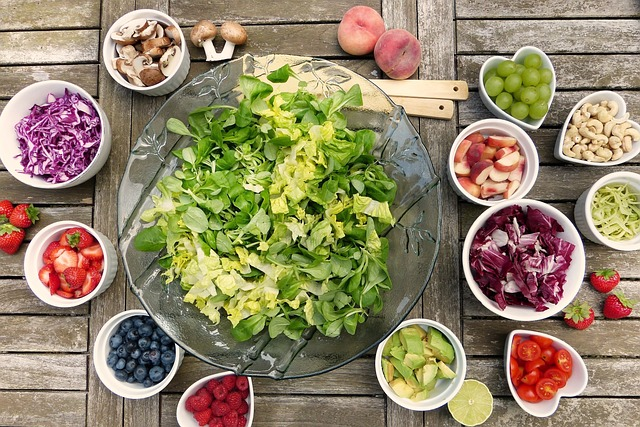
Video Credit: @PhysiciansCommittee
So Why Not Give It a Try?
Start experimenting with the delicious and nutritious foods of the vegan Mediterranean diet, and discover for yourself the health and wellness benefits that this diet can offer.
Remember, it’s not just about diet. It’s a lifestyle. Enjoy the journey!
Frequently Asked Questions
What is a Vegan Mediterranean Diet?
The Vegan Mediterranean Diet is a plant-based version of the traditional Mediterranean diet. It emphasizes fruits, vegetables, whole grains, and nuts while excluding animal products. This diet is known for being heart-healthy and environmentally friendly.
Can I get enough protein on this diet?
Yes, the Vegan Mediterranean Diet provides ample protein. Beans, lentils, chickpeas, and quinoa are excellent sources. Nuts and seeds also contribute to your daily protein intake.
Is it expensive to follow this diet?
Following this diet can be budget-friendly. Buying seasonal produce and bulk grains helps save money. Additionally, plant-based proteins like beans are typically cheaper than meat.
Can I still eat out with friends?
Yes, dining out is still possible on this diet. Many restaurants offer vegan options that fit the Mediterranean style. Always check the menu ahead of time or ask the chef for customizations.
Will this diet help me lose weight?
This diet can aid in weight loss due to its high fiber and low processed food content. It promotes fullness and healthy digestion. However, weight loss varies depending on individual lifestyle and metabolism.
Learn Vegan Cooking With Us!
Discover the various vegan dishes with Vegan Globetrotter. Learn aromatic and appetizing vegan dishes that blend flavor, health, and simplicity. Stay connected and enhance your vegan cooking skills.
- Facebook: Vegan Globetrotter
- Instagram: @_veganglobetrotter
- Pinterest: The Vegan Globetrotter
- Twitter: @VeganGlobetrot
Join our community and explore the wonders of vegan cooking! For more insights into the world of vegan cooking, visit our website: veganglobetrotter.com


Don't miss out
when new recipes and information are added!
Join our newsletter for free recipes,
healthy living inspiration, and special offers
You have Successfully Subscribed!